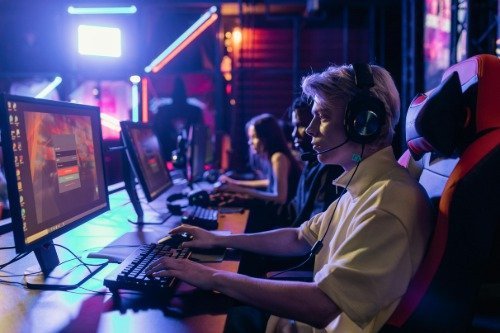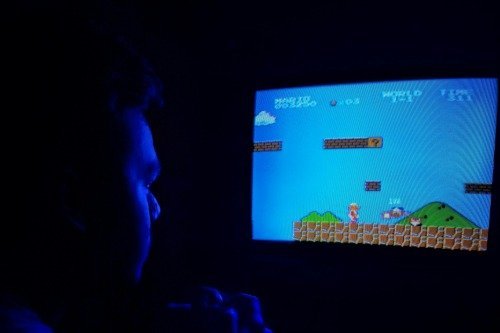Esports has come a long way from the days of casual gaming to a multi-billion dollar industry that attracts millions of viewers and offers lucrative careers for its top players. What many people don’t realize is that esports athletes face a similar level of physical and mental demands as Olympians, often going through intense training routines to keep their bodies and minds in peak condition. While the gaming world may seem like a relaxing, sedentary activity, the athletes who compete at the highest level undergo grueling regimens that require skill, endurance, and precision. Yet, there’s one factor that makes their lives harder than their Olympic counterparts: the unique toll that prolonged gaming sessions take on their bodies.
The Unseen Physical Demands of Esports Training

Esports athletes might not be running marathons or lifting weights, but the physical demands of competitive gaming are no less taxing. At the professional level, gamers train for up to 10 hours a day, refining their hand-eye coordination, decision-making, and reaction times. This means they are glued to screens for extended periods, sitting in the same position for hours, and often repeating the same movements over and over. The physical strain from this type of training can be brutal, leading to issues like carpal tunnel syndrome, eye strain, and neck and back pain.
The similarities between esports training and Olympic training might not be immediately obvious, but athletes in both fields spend hours honing their craft in pursuit of perfection. In esports, precision is paramount. Just like a swimmer perfects their stroke or a gymnast refines their routine, an esports player meticulously practices their skills, sometimes going through the same sequences again and again until they get it just right. This focus on detail often leads to burnout and repetitive strain injuries, which can derail a player’s career.
Despite the mental focus required, physical training in esports is just as essential. Many professional gamers work closely with trainers to develop strength, flexibility, and endurance. They focus on building up key muscle groups, like their forearms and wrists, that are crucial for quick, repetitive movements. Esports athletes are also encouraged to take breaks and stretch to avoid the long-term consequences of excessive gaming.
The Mental Fortitude of an Esports Athlete

While the physical aspect of esports training is challenging, it is the mental aspect that truly sets esports athletes apart. The mental endurance required to be an elite gamer is on par with that of Olympians. Esports athletes face high-pressure situations where every move, every decision, and every second counts. The mental sharpness needed to compete in fast-paced games is immense, requiring not only lightning-fast reflexes but also the ability to read opponents, predict moves, and remain focused for hours at a time.
Much like Olympic athletes, esports players undergo intense mental training to keep their focus intact. Mental conditioning techniques like visualization, stress management, and cognitive training are a standard part of a professional gamer’s regimen. Teams often employ sports psychologists who help athletes manage the psychological pressures of the game and stay at their best, both in practice and competition. This includes dealing with the high-stakes nature of esports tournaments, which often involve thousands, if not millions, of dollars in prize money.
The intensity of esports competitions also means that players experience significant amounts of mental fatigue. It’s not uncommon for gamers to push through 12-hour training sessions, which can lead to burnout if they don’t take care of their mental well-being. Olympic athletes often deal with similar challenges, balancing the pressures of competition with the mental strain of being constantly in the public eye. In both cases, the athletes need to be at their peak mental state to succeed.
The Toll of Lack of Sleep and Mental Fatigue

While the mental and physical aspects of esports training are demanding, there’s one significant factor that makes their lives harder than their Olympic counterparts: the toll of lack of sleep and mental fatigue. The esports world is fast-paced, with tournaments taking place all around the world and schedules that often run into the early hours of the morning. Many professional gamers work long hours and travel frequently, leading to irregular sleep patterns and high levels of stress.
Lack of sleep has become one of the biggest challenges for esports athletes, and it can have a serious impact on their performance. Poor sleep quality affects cognitive function, reaction times, and decision-making ability, all of which are crucial in competitive gaming. Unlike Olympians, who generally train and compete on a more predictable schedule, esports athletes often find themselves dealing with jet lag, irregular training hours, and disrupted sleep patterns, all of which affect their mental sharpness.
Sleep deprivation also has a direct impact on physical health. Just as Olympic athletes are careful to avoid burnout and injuries, esports athletes need to take extra precautions to avoid health issues related to chronic sleep deprivation, such as weakened immune systems and increased risk of injury due to lack of focus. The long hours spent in front of a screen without proper rest or recovery can lead to long-term consequences that are hard to reverse.
Esports organizations are beginning to recognize the importance of sleep for their athletes, but the fast-paced, high-stakes nature of the industry makes it difficult to implement consistent sleep schedules. In fact, sleep deprivation is so prevalent that some top esports players have begun working with sleep specialists to ensure they get the rest they need to perform at their best.
Conclusion: The Strain of Esports Training
Esports athletes undergo a training regimen that is comparable to the most demanding Olympic sports, involving both physical and mental challenges that push them to their limits. However, the one factor that makes their lives particularly difficult is the lack of sleep and the mental fatigue associated with the fast-paced, often chaotic nature of the esports world. While the physical strain from hours of gameplay is significant, it is the constant juggling of travel, irregular hours, and sleep deprivation that sets esports athletes apart from their Olympic counterparts. Until the industry adapts to better address these challenges, esports athletes will continue to train like Olympians—but with a unique set of obstacles that make their lives harder than they may seem.


